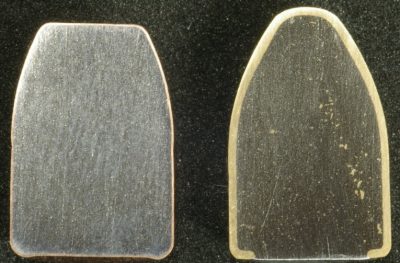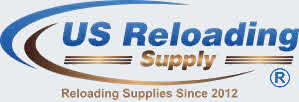Buy Jacketed or Plated Bullets
Buy Jacketed or Plated Bullets
I often hear the question, “Should I buy plated or jacketed bullets?” Many times, reloaders (and many dealers) don't know the difference. Case in point, my crew and I were at the Tampa gun show last month and I took a look at one booth where the vendor was selling some Berry’s 40 caliber 180 grain FP bullets. They weren't marked, so I asked one of the staff if they were jacketed or plated. After consulting with others behind the counter, he stated they were definitely jacketed. What struck me as odd is that Berry's makes mostly plated pistol bullets (they do sell some jacketed rifle bullets, however), so after a little research (and calling Berrys, just to make sure I wasn’t wrong), it was apparent that the vendor wasn’t selling what they thought or said they were.
Difference
That’s when I decided to blog about the difference between plated and jacketed bullets, and whether you should buy one over the other.
- Plated bullets start out as a swaged lead bullet, just slightly smaller than the desired diameter. They are then 'coated' with copper to give them a nice finish and to eliminate barrel leading. The plating is usually done through electrolysis, although there are different methods. The amount of plating, final diameter/weight largely determines the quality of the bullet. Berry's website states, “.0035 up to .008 of an inch of plating on each side” is the normal thickness of their plating.
- Jacketed bullets start off with a copper 'tube' or cup, closed off at one end (.020 to .035 thick). Then, a lead core is inserted into the tube and a press expands the core against the copper walls using tremendous pressure. The bullet is then resized to the correct dimensions and the bullet tip is formed (round nose, hollow point, etc)
Below is a cutaway of one of Berry's plated bullets and next to it a jacketed bullet (thanks to Firing Line for the photo). As you can see, the thickness between a plated and a jacketed bullet is substantial and will make a big difference when you reload it.
Why Buy Plated or Jacketed?
So why buy/load one over the other? Plated bullets are typically not recommended for the same velocities as a jacketed bullet. In most target circumstances, a plated bullet will work just fine, but if you are loading 'hot' in the magnum ranges, then jacketed is the way to go. One caution to consider. While some manufactures call their bullets jacketed, in reading the details, you may find out that they are actually plated. Before you reload, ensure you’ve got the right bullet for the job.





